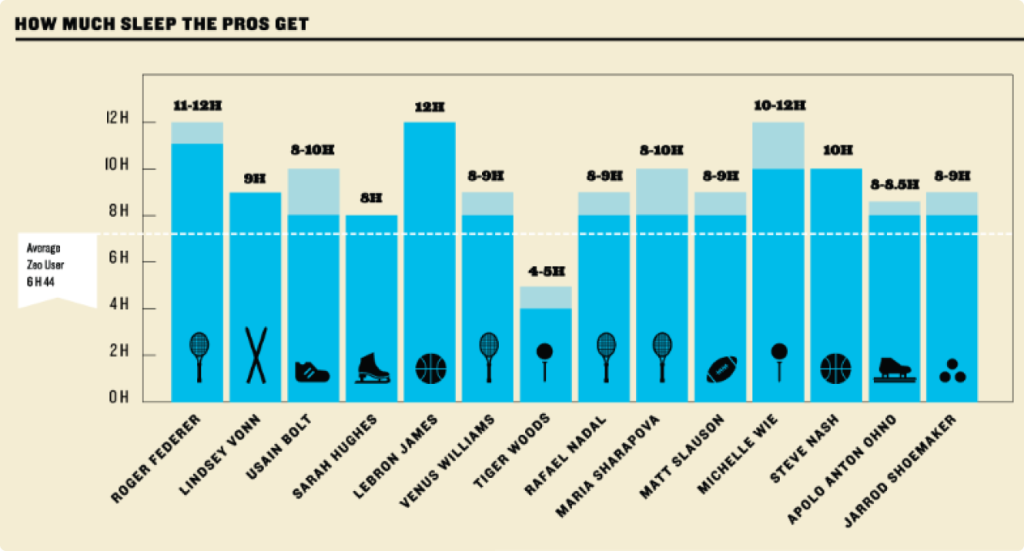The most important component of recovery is sleep.
Sleep is recovery.
Many athletes, “eat, sleep and breathe” for their sport but how much quality sleep are they actually getting? How is it affecting their performance?
Athletic performance can vary by up to 26% over the course of a day depending on an athlete’s circadian rhythm, according to research published in the journal of Current Biology. Circadian rhythms are internal cycles of around 24 hours that regulate various behavioural and physiological systems in the body.
Poor sleep quality greatly affects athletic performance in multiple areas.
The effects on performance include:
- Restricting sleep to less than 6 hours per night for four or more consecutive nights has been shown to impair cognitive performance and mood. It often shows up in the form of mild depression, lack of motivation, sleep disruption and cravings for carbohydrates
- Decreased thyroid hormone causes a general hormonal balance. This is especially true when it comes to the regulation of glucose metabolism and appetite regulation, leading to poor blood sugar management and insulin resistance
- Reduced immune function (Krueger et al., 2011) also creates a higher inflammatory state in the body
- Altered sex hormone activity
- Amino acid loss from muscles
The evidence has led to the recommendation people get at least 8 hours of sleep per night to assist in the prevention of neurobehavioral deficits. The truth is, whether you are an athlete or not, many of us are haunted by some form of sleep deprivation. The good news is that we can easily shift our habits around sleep, allowing us to maximise repair and optimise performance.
Athletes should focus on utilising good sleep patterns to maximise quality sleep. Create a good sleep routine by going to bed at the same time and waking up at the same time.

Elite athletes use the following strategies:
- Napping: Also known as a “siesta”, napping can be useful. However, generally naps should be kept to less than 1 hour and not too close to bedtime as it may interfere with sleep
- Consistency: Keep a relatively consistent bedtime and wakeup time. Staying up late and sleeping in on weekends can disrupt your routine during the week
- The bedroom should be cool, dark and quiet. Eye masks and earplugs can be helpful, especially when travelling
- Temperature: Keep a slightly cool temperature in the room, between 18-22 C (66-72 F)
- Light: Keep the bedroom extremely dark to tell the body’s light-sensitive clock that it’s time to sleep
- Relaxation/routine: Develop a pre-bed routine that is relaxing and familiar. Television, work, computer use, movies and deep/stressful discussions late at night disrupt sleep. Avoid watching television in bed, using the computer in bed and looking at the clock
- Stimulants: Eliminate stimulants like caffeine/nicotine, especially later in the day. Avoid caffeine approximately 4-5h prior to sleep (this may vary among individuals)
- Fullness: Do not go to bed after consuming too much fluid or food as it may result in waking up to use the bathroom and disrupting deep sleep


